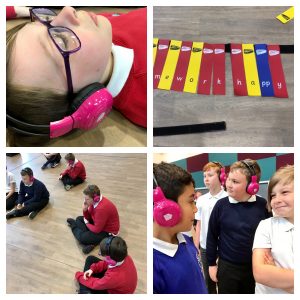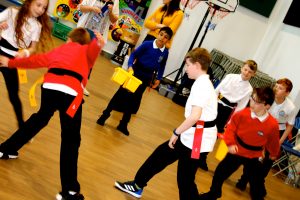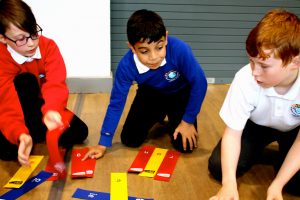Moving On Up – A New Chapter
Much to the relief of children and teachers in Year 6, this year’s SATs are now done and dusted! So what happens next? An enterprise project? Or more likely, rehearsals for the end of year leavers assembly, whereby children look back on their time at primary school – remembering the good times and looking ahead. For many children, transition can be exciting! We often hear teachers saying, “They’re big fish in a little pond” or “They’re ready to move on.” However, for many children, moving on can be especially difficult and challenging – especially those with attachment issues or who may be deemed vulnerable. Minor worries, wobbles and concerns can quickly escalate and the ‘move to big school’ can be foreboding. Research shows that, for some young people, it can negatively affect their social, emotional and academic outcomes leading to less engagement, lower attainment, reduced confidence, increased anxiety, loneliness and behaviour issues.
Children often ask:
- “How will I get to and from school?”
- “How many teachers will I have and how strict will they be?”
- “Will I get lost?” How will I ever know where to go?
- “How can I cope with all the homework?”
- “What about the big kids? What will they say/do to me? Will I be bullied?”
- “How do I make new friends?”
All schools will have a Transition Day – whereby children visit their new schools en masse and learn a bit more about their new school and its expectations and routines. For most, this day will be enough. However, for many children, those questions will rattle around in their heads and anxiety will kick in. How do we help these children?
One Way Forward
With this question in mind, we have created a transition programme with Animate 2 Educate. Our aim is to blend technology and physical activity in order to help children make friends and share their concerns. Each child needs to know that they are not alone – that others are also experiencing similar thoughts and feelings. In fact, in September 2019, 752,528 children will move up to secondary school across the UK. Using i-pads, the children are able to mind map their thoughts and feelings and build up a word cloud of key phrases. These same words and phrases are then created by the children using letter tags grabbed during the ‘move & learn’ session.
Another part of our Tagtiv8 transition programme includes 2 immersive experiences led by the wonderful award-winning Now Press Play – one dealing with transition and empathy, while the other looks at anti-bullying strategies. These immersion experiences allow children to delve into their own thoughts and share them with others once back in the real world.
Impact
The initial pilot project was deemed a success by school leaders and children alike. Denise Thompson, Head Teacher of Ravensworth Terrace Primary School said:
“The children were buzzing yesterday. It was lovely to see more quiet children grow in confidence. This was a great opportunity for the children to experience transition in a non-threatening way and realise that although change can make us feel uncomfortable and a little scared it can also be exciting.”
As to the children’s views on the sessions:
- “Very helpful and fun.”
- “It was relieving because I got to see what it would be like before doing it.”
- “I really enjoyed it and I think it really helped me.”
- “Now I feel more confident.”
- “It was fun and I enjoyed the active activities the most.”
- “I got to meet new people.”
- “The children from the other schools were very kind as well.”
- “I had fun and I found it very relaxing.”
Martin Bailey, Director of Animate 2 Educate said:
“Transition can be difficult for many pupils and hopefully this programme helps to allay some of their fears. Children realise that anxiety around change is a natural emotion and although we might not always want change to take place it is something that can bring about exciting new experiences and opportunities.”
Helping at Home
Transition programmes such as ours are invaluable in helping certain children in pioneering schools, but what else can be done?
We definitely recommend talking – or more to the point, listening. Reassure your children that what they are feeling is only natural. Remind yourself what it felt like when you made own move to secondary school, but please don’t tell them tales of heads being flushed down the toilets or other urban myths.
Think of practical advice:
- Talk to your child’s primary teacher
- Accompany your child on a practice journey to the school
- Check the secondary school’s website and social media channels for information
Resources & Support
The GO TO site for secondary transition has to be BBC Bitesize’s Starting Secondary School. The website provides resources for 10 to 12 year olds, teachers and parents to help support transition. Bitesize has a host of video content. Their #StartingSecondarySchool campaign provides first-hand experience from children who have made the move and, not only survived, but thrived. There are also practical tips for you on how to best support your child and support for children in their final term of primary school through to their first few months in secondary school. To find out more, click here.
Looking Ahead
- Are you interested in helping your Year 6 Leavers prepare for transition?
- Do you want to consider all children or just targeted children?
- Do you want to look at children in your school only?
- Or would you like to collaborate with other schools?
Whatever your thoughts on transition may be, we are here to help. Contact us to check availability and discuss options.



